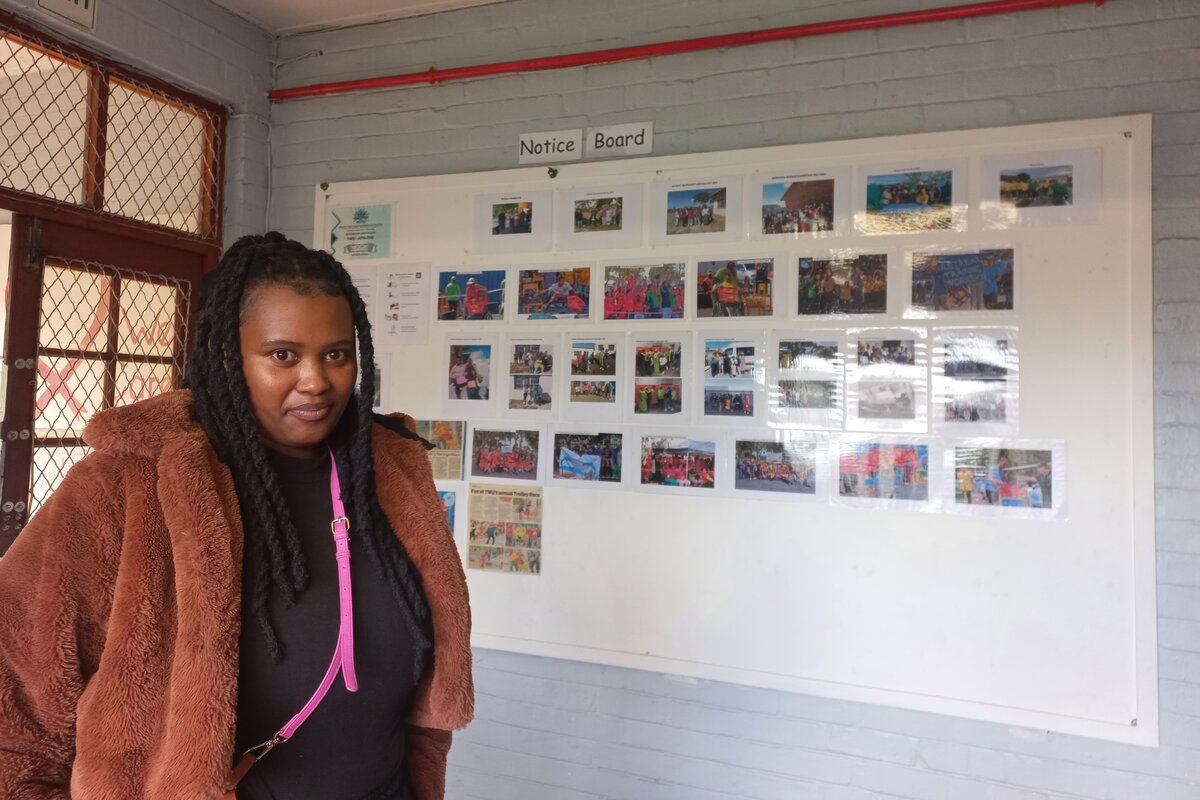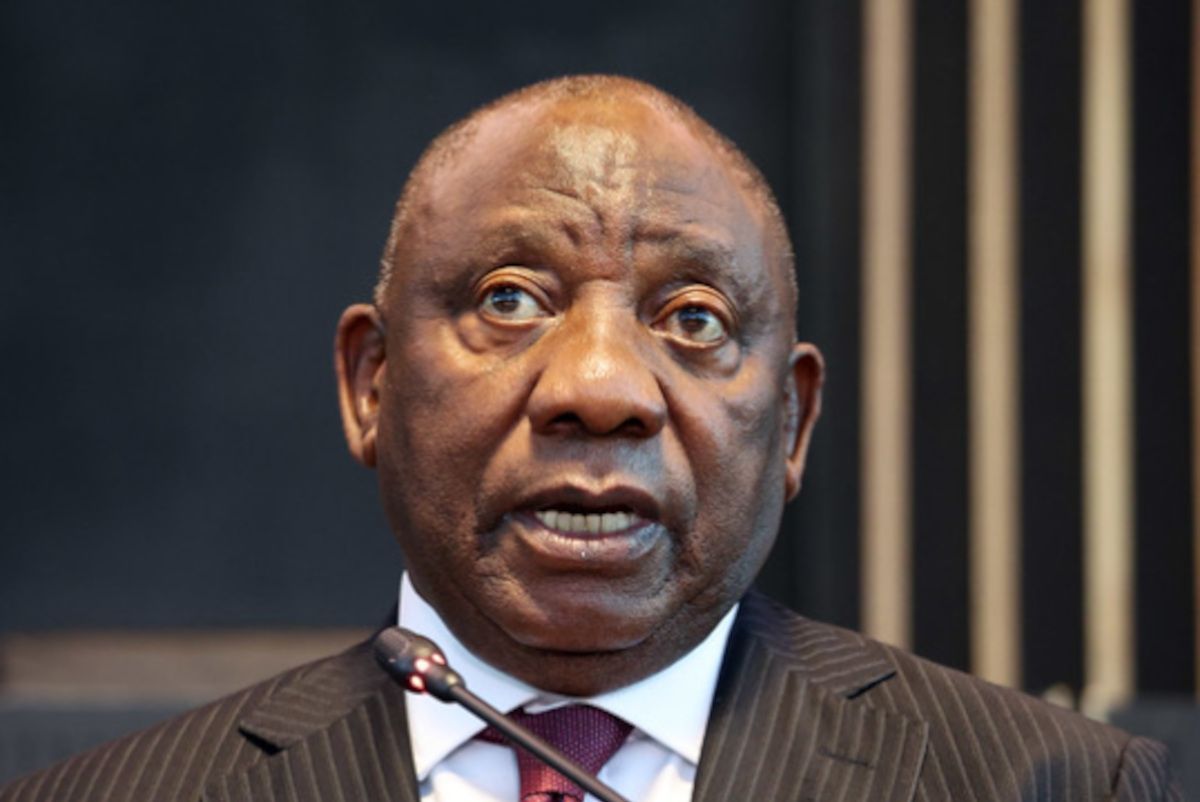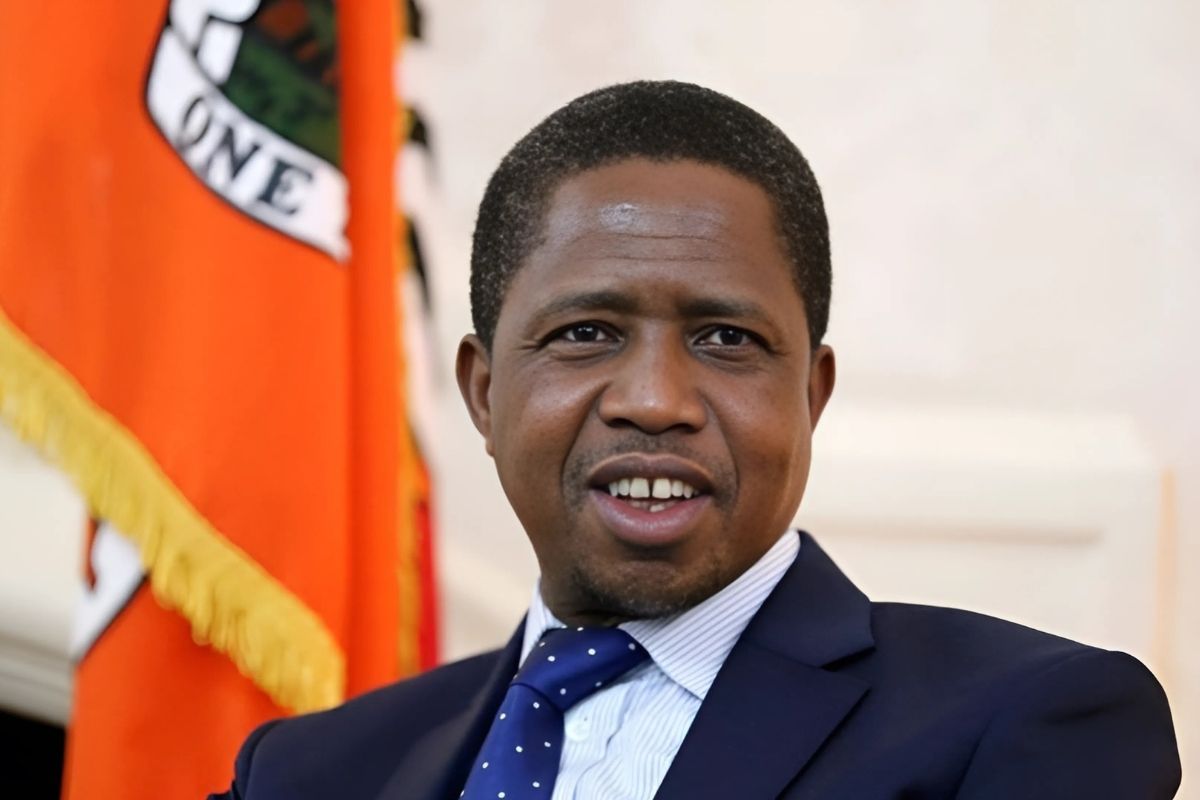
Youth with intellectual disability face steep barriers to employment and support in South Africa. Yet, they are often forgotten in public discussions about unemployment.
Having an intellectual disability (ID) limits a person’s ability to learn and execute daily tasks. Roughly 4% of South Africans are affected by some level of ID, ranging from mild to profound.
According to the South African Federation for Mental Health (SAFMH), ID continues to be one of the most overlooked disabilities in the country. While there are some opportunities available, people with ID want more support.
Stigma makes having a disability ‘not nice’
Weekdays from 8am until 5pm, 28-year-old Zintle Sophangisa handles fabric that will become pants and jackets, and marks out where the pockets will be sewn. A fashionista from Nyanga in Cape Town, she is saving for a sewing machine, dreaming of starting her own clothing label.
However, arriving at this period of hope was a gruelling journey. Zintle’s mild intellectual disability means she struggles to read and write. She often forgets things, like her bank PIN.
Situations where other people are impatient (like in the queue for the ATM) heighten her anxiety and depression. She tells The South African:
“It’s not nice to have a disability because of the judgment.”
South Africa has an Inclusive Education policy, but many children with disabilities are still not adequately supported in schools. Zintle recalls being endlessly teased at school because of her disability. Between that and struggling with academics, she left school during Grade 9.
Overcoming isolation in protective workshops
However, almost ten years later, Zintle was a mother, keen to earn a living. After hearing that local mental health organisation Cape Mental Health supported people with ID, she enrolled in their Training Unlimited Workshop (TWU) in early 2024.
In this protective workshop, people with disabilities can earn an income through tasks like beading or recycling metal. Trainees also learn work skills and how to cope with their disabilities.
Support measures for people with mild intellectual disability include:
- Easy-to-Read, a system of symbols and simplified text, assists Zintle in understanding documents.
- Voice-enabled appshelp Zintle keep a diary and a to-do list.
- Voice notes on messaging apps allow Zintle to communicate without reading or writing.
Zintle now finds it easier to explain her disability and ask for support. She also feels a stronger sense of belonging.
Supported employment: Hope for youth with intellectual disability?
Persons with disabilities have a constitutional right to employment. However, a 2023 research paper indicates that most are jobless. Also, increased learnership enrollments have not improved employment outcomes for people with disabilities.
Samantha Hendricks, Zintle’s job coach at TWU Athlone, says employers are reluctant to hire people with disabilities. In 2024, 12 workshop trainees were placed in jobs. Of 171 trainees at TWU Athlone this year, she’s placed eight so far by engaging with 12 employers.
“People think that we are lazy,” Zintle explains. However, with government funding, she completed a sewing course in 2024, which led to her current job in supported employment.
The 2016 White Paper on Rights of Persons with Disabilities defines supported employment as ongoing support, including job coaching, in integrated work settings. For Zintle, it also means her supervisor encouraging her to take breaks when she is very anxious.
Jobs for youth with intellectual disability are ‘elusive’
Deputy Minister of Employment and Labour Jomo Sibiya recently told Parliament that enforcing disability-related provisions of the Employment Equity Act is key. 13 state-run factories also employ over 1000 people with disabilities, aiming to reach 3000 by 2030.
However, Michel’le Donnelly, communications and awareness lead at SAFMH, which represents mental health organisations like Cape Mental Health, says:
“Employment in the open-labour market remains elusive for youth with ID.”
SAFMH recognises that the general youth unemployment rate of 46.1% makes it harder for youth with ID to find work outside protective workshops. However, it wants government to do more to encourage supported employment in the private sector.
Following dreams starts with support systems
The government disability grant tangibly supports over 1 million people. But Zintle stresses that the grant is not the answer:
“We can’t just apply for SASSA. No, we have dreams.”
Zintle dreams of compiling her memoir and employing others with ID in her future fashion business. She encourages others with disabilities to seek support:
“It’s hard for us to tell people that we want something, especially when you don’t get the support, but people must try to speak out. Say, ‘I want to do this. Can you support me to do this thing?’”
What should be done to include youth with intellectual disabilities?
Let us know by leaving a comment below or send a WhatsApp to 060 011 0211.
Subscribe to The South African website’s newsletters and follow us on WhatsApp, Facebook, X, and Bluesky for the latest news.













